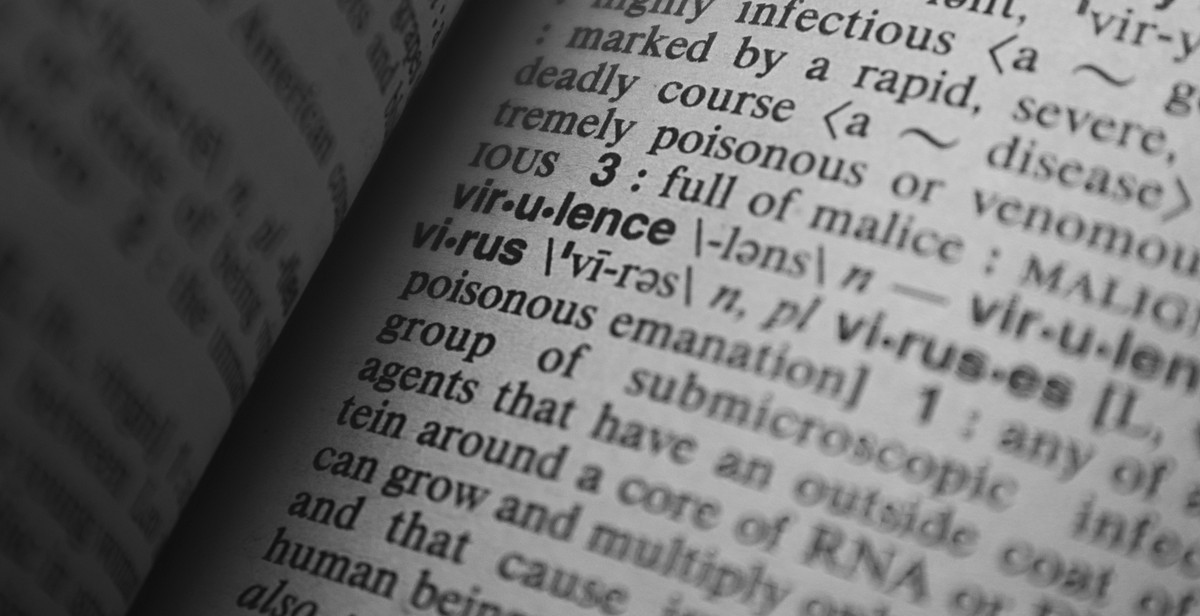Love and Gaslighting: How to Recover from Emotional Manipulation
As a love and relationships psychology guru, I have seen many cases of emotional manipulation in romantic relationships. However, my personal experience with gaslighting was one of the most challenging and traumatizing experiences of my life.
Gaslighting is a form of emotional abuse where the abuser manipulates the victim into questioning their own sanity and reality. It can take many forms, from subtle gaslighting to more overt and aggressive forms. In my case, my partner would constantly deny things that had happened, twist my words and actions, and make me feel like I was losing my mind.
It took me a long time to realize what was happening and to break free from this toxic relationship. But through my personal experience and my expertise in psychology, I have learned effective strategies to recover from gaslighting and emotional manipulation.
- In this article, I will share my personal experience with gaslighting and how I overcame it.
- I will explain the signs of gaslighting and how to recognize if you are a victim of emotional manipulation.
- I will provide practical tips on how to recover from gaslighting and regain your sense of self and reality.
If you have ever experienced gaslighting or emotional manipulation in your romantic relationships, this article is for you. Let’s explore together how to recover from this traumatic experience and find healing and empowerment.

What is Gaslighting?
Gaslighting is a form of emotional manipulation where the abuser makes the victim doubt their own sanity and perception of reality. The abuser uses various tactics to make the victim feel confused, disoriented, and unsure of themselves.
Gaslighting can happen in any type of relationship, including romantic relationships, friendships, and even in professional settings. The abuser may use tactics such as lying, denying, and twisting the truth to make the victim doubt their own memory, perception, and judgment.
Signs of Gaslighting
Gaslighting can be difficult to detect, especially if the victim is not aware of the tactics being used against them. However, there are some common signs of gaslighting that may indicate emotional manipulation:
- The abuser denies things they previously said or did.
- The abuser makes the victim doubt their own memory and perception of events.
- The abuser twists the truth to make the victim doubt their own judgment.
- The abuser blames the victim for things they did not do.
- The abuser uses emotional manipulation tactics such as guilt-tripping, shaming, and belittling.
Effects of Gaslighting
Gaslighting can have serious and long-lasting effects on the victim’s mental health and well-being. The victim may experience anxiety, depression, low self-esteem, and confusion. They may also feel isolated and alone, as the abuser may have convinced them that no one else understands or believes them.
Gaslighting can also have a profound impact on the victim’s ability to trust themselves and others, as they may doubt their own judgment and perception of reality. This can make it difficult for the victim to form healthy relationships and make decisions that are in their best interest.
| Tip: | If you suspect that you or someone you know is being gaslit, it is important to seek help and support from a trusted friend, family member, or professional. Gaslighting is a form of emotional abuse and should not be tolerated in any relationship. |
|---|
Signs of Gaslighting in a Relationship
Gaslighting is a form of emotional manipulation that can be difficult to recognize, but it can have long-lasting effects on a person’s mental health and self-esteem. Here are some signs that you may be experiencing gaslighting in your relationship:
1. Denial of Reality
If your partner denies things that you know to be true, such as events that happened or conversations you had, they may be attempting to make you doubt your own memory and perception of reality.
2. Blame-Shifting
Gaslighters often shift blame onto their partner for things that are not their fault. They may also use your insecurities or vulnerabilities against you to make you feel guilty or responsible for their behavior.
3. Withholding Information
Gaslighters may withhold information from their partner to make them feel confused and unsure of themselves. They may also use this tactic to create a power dynamic in the relationship where they have all the knowledge and control.
4. Minimization
Gaslighters may minimize their partner’s feelings or experiences, making them feel like their emotions are not valid or important. This can lead to feelings of isolation and low self-worth.
5. Projection
Gaslighters often project their own negative traits or behaviors onto their partner, making them feel like they are the problem in the relationship. This can lead to feelings of self-doubt and confusion.
6. Intimidation
Gaslighters may use intimidation tactics, such as yelling or threatening behavior, to control their partner and make them feel scared or powerless.
7. Isolation
Gaslighters may isolate their partner from friends and family, making them feel like they have no one to turn to for support or validation. This can make it harder to recognize and escape the gaslighting behavior.
8. Constant Criticism
Gaslighters may constantly criticize their partner’s behavior or appearance, making them feel like they can never do anything right. This can lead to feelings of low self-esteem and a lack of confidence.
9. Love-Bombing
Gaslighters may use love-bombing tactics to make their partner feel special or loved, only to withdraw affection or attention later on. This can create a cycle of emotional highs and lows, making it harder to recognize the gaslighting behavior.
10. Gaslighting Others
If your partner gaslights others, such as friends or family members, it may be a red flag that they are also gaslighting you. Gaslighters often have a pattern of behavior that extends beyond just one relationship.
If you recognize any of these signs in your relationship, it may be time to seek help and support from a therapist or trusted friend. Gaslighting can be a difficult pattern to break, but it is possible to recover and build a healthier, more positive relationship.

Why do People Gaslight?
Gaslighting is a form of emotional manipulation where someone makes another person doubt their own sanity and perception of reality. It is a common tactic used by abusers and is often found in toxic relationships. But why do people gaslight in the first place?
Reasons for Gaslighting
- Control: Gaslighting is a way for the abuser to gain control over the victim. By making them doubt their own thoughts and feelings, the abuser can manipulate the victim into doing what they want.
- Insecurity: Gaslighters often have deep-rooted insecurities and low self-esteem. By making others feel inferior, they can feel better about themselves.
- Fear of Abandonment: Some gaslighters may fear being abandoned by their partner, and so they use manipulation tactics to keep them from leaving.
- Projection: Gaslighters may project their own negative traits onto their victim, making them feel as though they are the ones with the problem.
Personality Traits of Gaslighters
Gaslighters often exhibit certain personality traits that make them more likely to engage in this type of behavior:
| Trait | Description |
|---|---|
| Narcissism | Gaslighters often have an inflated sense of self-importance and a lack of empathy for others. |
| Manipulativeness | Gaslighters are skilled at manipulating others to get what they want. |
| Aggressiveness | Gaslighters may use aggression or intimidation to get their way. |
| Jealousy | Gaslighters may be prone to jealousy and may use manipulation tactics to control their partner’s behavior. |
Understanding why someone may gaslight can be helpful in identifying and addressing the behavior. However, it is important to remember that gaslighting is never acceptable and is a form of emotional abuse. If you are experiencing gaslighting in a relationship, it is important to seek help and support.
How to Recover from Gaslighting
If you have been a victim of gaslighting, it can be a difficult road to recovery. However, it is possible to heal and move forward from this emotional manipulation. Here are some steps to take:
Seek Professional Help
One of the most important steps in recovering from gaslighting is seeking professional help. A therapist or counselor can help you process the experience, identify any lingering effects, and develop coping mechanisms. They can also provide validation and support, which is crucial after being made to doubt your own reality.
Set Boundaries
Setting boundaries is essential in recovering from gaslighting. This means establishing clear limits for what behaviors you will and will not tolerate from others. It also means communicating those boundaries clearly and consistently. It can be difficult to do this after being conditioned to doubt your own judgment, but it is important to remember that you have the right to set boundaries and enforce them.
Practice Self-Care
Gaslighting can leave you feeling emotionally drained and vulnerable. Practicing self-care can help you feel more grounded and in control. This can include things like exercise, meditation, spending time with loved ones, and engaging in activities that bring you joy. Remember to prioritize your own needs and take time for yourself.
- Seek professional help
- Set boundaries
- Practice self-care
Recovering from gaslighting can be a challenging process, but it is possible. By seeking professional help, setting boundaries, and practicing self-care, you can begin to heal and move forward from this form of emotional manipulation.

Final Thoughts
Experiencing gaslighting in a relationship can be devastating and can take a toll on one’s mental and emotional health. It is important to recognize the signs of emotional manipulation and take action to protect oneself from further harm.
If you have been a victim of gaslighting, know that recovery is possible. Seek support from trusted friends and family members, and consider reaching out to a therapist or counselor who specializes in trauma and abuse.
Remember to prioritize self-care and focus on rebuilding your self-esteem and confidence. This may involve setting boundaries, practicing self-compassion, and engaging in activities that bring you joy and fulfillment.
It is also important to be cautious in future relationships and to trust your instincts. If something feels off or you notice red flags, don’t ignore them. Trust yourself and don’t let anyone make you doubt your own reality.
Ultimately, recovering from gaslighting is a journey that requires patience, self-reflection, and a commitment to healing. But with time and support, it is possible to move forward and reclaim your power and sense of self.
